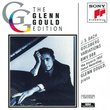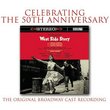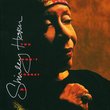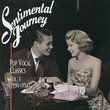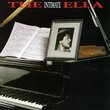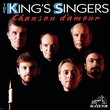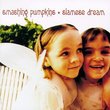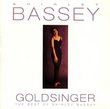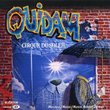| All Artists: Johann Sebastian Bach, Glenn Gould Title: The Glenn Gould Edition - Bach: The Well-Tempered Clavier, Book II Members Wishing: 0 Total Copies: 0 Label: Sony Release Date: 1/11/1994 Genre: Classical Styles: Forms & Genres, Improvisation, Historical Periods, Baroque (c.1600-1750) Number of Discs: 2 SwapaCD Credits: 2 UPC: 074645260327 |
Search - Johann Sebastian Bach, Glenn Gould :: The Glenn Gould Edition - Bach: The Well-Tempered Clavier, Book II
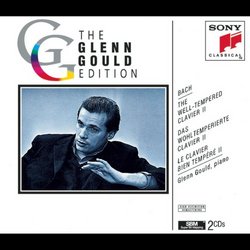 | Johann Sebastian Bach, Glenn Gould The Glenn Gould Edition - Bach: The Well-Tempered Clavier, Book II Genre: Classical
Glenn Gould's Bach is by now so ingrained in the 20th-century musical consciousness that it's almost hard to remember just how unusual his devotion to this composer was back in the 1950s and '60s when he first started maki... more » |
Larger Image |
CD DetailsSynopsis
Amazon.com Glenn Gould's Bach is by now so ingrained in the 20th-century musical consciousness that it's almost hard to remember just how unusual his devotion to this composer was back in the 1950s and '60s when he first started making records. That his Bach recordings are still the standard by which all others are measured is a tribute to his self-awareness as an artist. If you are looking for the essential Glenn Gould playing Bach, then the three sets you really ought to have are his Goldberg Variations (either version), plus the two books of The Well-Tempered Clavier. Gould was simply incomparable in the contrapuntal intricacies of Bach's fugal writing, and in The Well-Tempered Clavier he has 48 opportunities to strut his stuff. He makes a show of every one. --David Hurwitz Similarly Requested CDs
|
CD ReviewsGould's highly individual and spiritual interpretation. Marmez1@aol.com | Los Angeles, CA USA | 03/25/2000 (5 out of 5 stars) "Anyone considering a version of Book 2 of WTC should first read the reviews of various versions of Book 1. The listings for Glenn Gould's version will cover the range of opinions about Gould himself and his interpretive style. Clearly Gould is not for everyone. Yet I contend that without Gould (and Rosalyn Tureck) there would be far less playing of Bach during the past three decades. Furthermore, even if you prefer the more straightforward version of someone like Schiff (which I find a bit boring despite its technical brilliance) I would commend Gould to you for the purpose of hearing WTC in a different and imaginative way.Gould learned Book 1 from his mother at a rather young age. He seems to have mastered Book 2 himself. In addition, by the time he recorded most of Book 2, the characteristics of his piano had changed. It had been damaged in an accident and when it was rebuilt, the action was a bit slower than it had been originally. This might account for the slightly slower tempos of Book 2, though it is equally possible that the more profound and spiritual nature of the music itself is responsible. In any event the preludes and especially the fugues of Book 2 seemed to interest Gould more than Book 1. He rarely performed anything from Book 1 after his complete recording, while he often performed selections from Book 2. For example, he has four versions that I could locate of the fugue in E major BWV 878 from Book 2. The performances each time are radically different from each other. On the recording of the complete WTC he takes the fugue very fast. On his video performance with Bruno Monsaingeon, for the CBC (and available on a Sony laser disc SLV 48426) he plays it at about half the speed. As a matter of fact, when Gould records a piece more than once, I have never found the performances to be the same.The bottom line for me is whether you prefer Edwin Fisher's recording from the 1930's on EMI, or Richter's on Le Chant du Monde which has such a difficult sound but such a stimulating performance, or Schiff on Decca/London with what I consider to be his politically correct, though brilliant performance, or someone else, like Feltsman, you should include Book 2 played by Gould in your collection. Bach is so great that no single performance can plumb his depths. As you get to love this music more and more, you will simply have to own performances with multiple perspectives. This one must be among them - perhaps chief among them as it was for me." Bach and Gould at Their Best. Marmez1@aol.com | 12/19/1998 (5 out of 5 stars) "This set of preludes and fugues is - in my opinion - of even greater emotional density than Part I. Almost every fugue has an unforgettable subject, played by Gould with great clarity and power, and yet there is always lightness in his interpretations (stemming most likely from his unsurpassed technique and "gut level" understanding of the spirt of Bach's music) which make this music soothing and energizing at the same time. Gould is world apart from heavy-handed, pedal-abusing, tempo-changing romantic interpretations of Bach. He is constrained and almost inhumanly precise, which allows him to convey the depth and power of Bach's masterpieces in the best possible way. I have never heard a better interpretation of the Well Tempered Clavier. I've been listening to this music for years and it never lost its emotional impact. And Gould's humming in the background brings the whole recording to a very personal, intimate level: he must have enjoyed those moments in the recording studio, and he must have loved the music he played. Glenn Gould is my hero!" My Favorite WTC Frank DeLaglio | Staten Island, New York USA | 03/25/2003 (5 out of 5 stars) "The music of JS Bach is extremely interesting, and one thoughtful listening to his works has the power to change the way you hear and perceive music forever more. Bach's keyboard works are typically polyphonic, and that basically means two melodies, or more acurately stated, two musical thoughts, are presented simultaneously. The resulting musical edifice has the potential to sound like, how does one say? "too many notes". Because of the very nature of counterpoint, the simple elegance of Mozart, or the heart-tugging in-your-face-passion of Beethoven, are not as accessible to the average listener. But there is an unmistakable breadth and vitality found in Bach's musical counterpoint, conjoined with a unique grandeur and nobility, that can move and uplift the spirit in a way that is entirely unique. The Well Tempered Clavier (WTC) consists of two books, both of which are comprised of a prelude and fugue written in each of the major and minor keys of western music. Because there are twelve major keys, and twelve related minor keys, each book of the WTC is comprised of 24 prelude and fugues. One enjoyable aspect of the WTC for the new listener is that, because all of the major and minor keys are presented in a systematic way, one is able to discern what is most appealing to the listener's unique sensibilities. Perhaps you will find that you prefer major to minor, or vice versa. Perhaps you will find a handful of key signatures that you think are preferable, and that can be the foundation for further exploration into other pieces of music written in the same key. I own a number of recordings of J.S. Bach's WTC. I happen to like book II better than book I, and this rendition is undoubtedly my favorite of them all. Gould's sense of rhythm is impeccable, and it is that aspect that makes this recording so stunning. The pulse is extraordinary, the ornamentation is played with extreme verve, and Gould's technical abilities and musicianship are more than adequate to keep strict time throughout. I also really appreciate the fact that Gould keeps his foot off the pedal, unlike Richter, or Fischer, or any number of the other standard recordings. A powerful and distinct rhythmic momentum should be felt throughout these works. It is also essential to maintain the clarity of each voice, and the pedal, or reverberation in general, can obscure both rhythm and clarity in the context of polyphonic music. Gould is able to bring distinctness to each voice in a way that is entirely unique. With that said, Gould does have some singular ideas about tempo. Sometimes it works, sometimes not. For an incredible example of when it works, listen to to his remarkable rendering of the prelude and the fugue in C#-Major. Both, but particularly the fugue, are taken at extremely slow tempos. The result is extraordinary. This is hands down my favorite recording of Bach's WTC. In my opinion, no other recording compares to this one."
|

 Track Listings (24) - Disc #1
Track Listings (24) - Disc #1